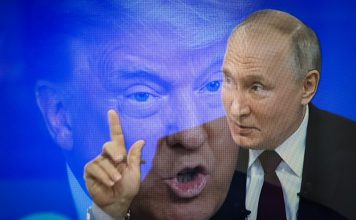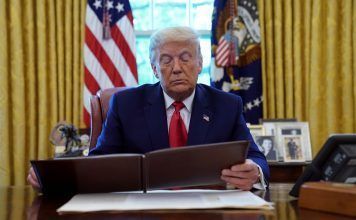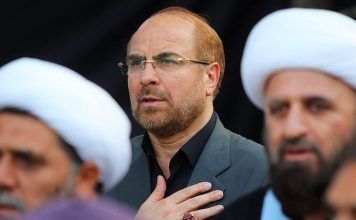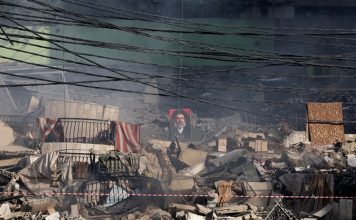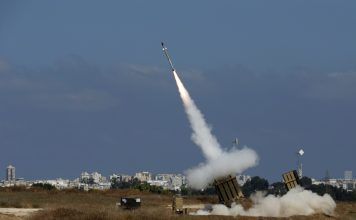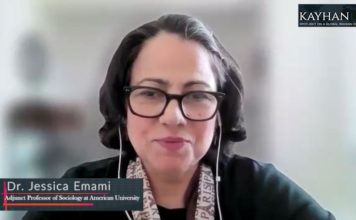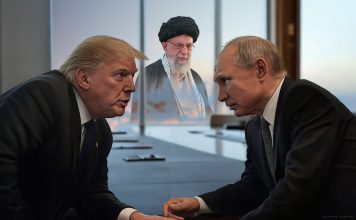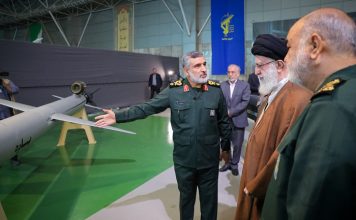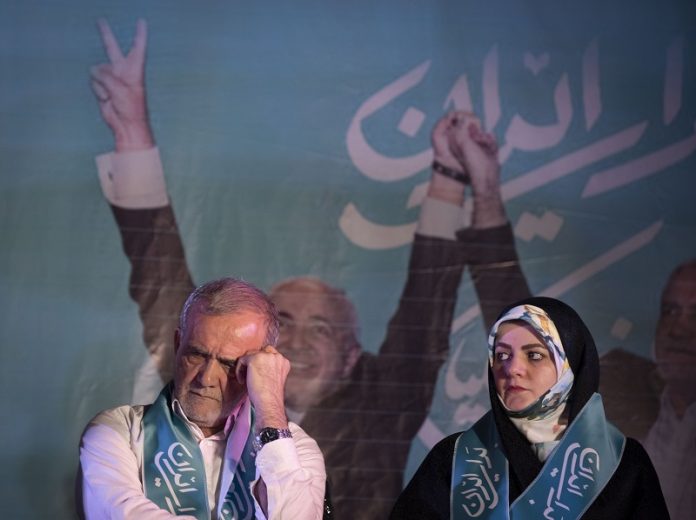
By Ahmad Rafat
Massoud Pezeshkian, who officially assumed the presidency of Iran on July 30, presented his cabinet nominees to the Majlis (Iranian Parliament) for approval on August 11. Pezeshkian said that he developed the list of cabinet nominees with the advice and consultation of Ali Khamenei, the Supreme Leader of the Islamic Republic. There is only one woman minister on the list of cabinet nominees.
In a swift reaction to this cabinet proposal, Mohammad Javad Zarif, appointed by Pezeshkian just two days earlier as the Vice President for Strategic Affairs, resigned from his position. Zarif, who served as foreign minister in former President Hassan Rouhani’s cabinet from 2013 to 2021, was a prominent supporter of Pezeshkian during his election campaign.
Zarif said he stepped down to ease the pressure on Pezeshkian’s government. However, according to people close to him, Khamenei’s rejection of Zarif’s proposed ministers was the primary reason for his resignation.
Following the announcement of the prospective government lineup, which is required to secure a vote of confidence from the Majlis, various reactions have emerged. Notably, the responses from the “reformist factions” have been overwhelmingly negative.
Javad Emam, the spokesperson for the Reform Front, said the proposed government would guarantee that “the military and paramilitary forces remain in control.” He also questioned the need for elections “if the purpose was to establish such a government.”
After Pezeshkian unveiled his proposed cabinet, Parvaneh Salahshouri, a notable former Majlis representative affiliated with the “reformist faction,” said: “Pezeshkian received a poor grade in certain areas during his first exam.”
“Experience has shown that a cabinet formed not based on skill and expertise, but through obvious interference and pursuit of personal interests, is likely to have a brief life,” she said.
ANALYSIS: Iran’s Foreign Policy Under Pezeshkian Is More of the Same
In contrast to Pezeshkian’s assurances regarding the inclusion of women and ethnic and religious minorities in his government, only one woman, Farzaneh Sadegh, has been named: as the Minister of Roads and Urban Development. No ministers from a Sunni background or ethnic minorities are listed among the cabinet appointments.
Expressing his disappointment at Pezeshkian’s proposed cabinet, Mohsen Biglari, a member of the Majlis representing the Baneh electoral district in the western province of Kurdistan, said: “Kurds and Sunnis voted for you with thousands of hopes, but today, when it was your turn to answer, Sunnis and Kurds did not have a share.”
The composition of the proposed government has diminished Pezeshkian’s position to that of Khamenei’s secretary more than any prior administrations, whether they were reformist, moderate, conservative, or radical.
The proposed government is likely to prolong the economic hardship and challenging living conditions many Iranians have experienced in recent years with no significant improvements.
This is because critical ministries — such as the Ministry of Economic Affairs and Finance, the Ministry of Labor and Social Affairs, the Ministry of Agriculture Jihad, the Ministry of Industries, Mines, and Trade, the Oil Ministry, and the Ministry of Energy, have been assigned to individuals with poor track records.
In recent years, Iran’s economy and living conditions for many Iranians have deteriorated significantly. This decline is not solely because of the three-year tenure of the late President Ebrahim Raisi, who died in a helicopter crash on May 19 of this year under circumstances that remain unclear.
The economic challenges began earlier, particularly during President Rouhani’s second term, from 2017 to 2021. The economy continuously deteriorated during this period, leading to increasingly dire living conditions for many Iranians.
The situation escalated to a breaking point in December 2017 and again in November 2019, when widespread protests erupted nationwide. Soaring prices, rampant inflation, and rising unemployment rates fueled these protests.
As of now, with the ongoing economic crisis persisting, security agencies within the Islamic Republic have issued multiple warnings in their internal reports about the potential for new mass protests.
In the current administration, all institutions that have historically contributed to the extensive oppression of the population, particularly women, are now under the control of individuals with a problematic history.
Esmail Khatib, who served as the Minister of Intelligence in Raisi’s administration and has the support of the security forces, has been nominated by Pezeshkian to keep this role in the forthcoming government.
Khatib was heavily involved in quelling the public protests following Mahsa (Zhina) Amini’s death in 2022, which sparked the international ‘Woman, Life, Freedom’ movement.
Pezeshkian also hopes to keep Amin Hossein Rahimi as the Minister of Justice, who served in the same role in Raisi’s administration. Under Rahimi’s leadership, the number of executions performed in the country has risen significantly compared to previous years.
From the start of this year until August 10, approximately 347 death sentences have been carried out in the Islamic Republic. Rahimi’s tenure as Minister of Justice is also marked by significant arrests and lengthy prison sentences imposed on the regime’s opponents.
Pezeshkian has reportedly chosen Brigadier General Eskander Momeni as the next Interior Minister. Momeni, who held the position of deputy commander of the Law Enforcement Command of the Islamic Republic of Iran (FARAJA) from 2014 to 2018, played a significant role in suppressing mass protests in December 2017 across 100 cities in Iran, which resulted in many deaths.
This prospective role would place Momeni at the forefront of managing internal security and public order within Iran, further solidifying his influence in governmental affairs.
In previous instances, particularly regarding the large-scale public demonstrations that erupted in 2009 following contested presidential election results, Momeni characterized the protests as “seditious.” He urged citizens to “reaffirm their loyalty to the principles of the revolution and the leadership of the Islamic Republic.”
Throughout the election campaign, Pezeshkian consistently voiced his opposition to the Morality Police patrolling the streets and their treatment of women not adhering to hijab regulations.
However, his selection for the Ministry of Interior is a figure who intends to take a hardline approach to women resisting compulsory hijab laws and shows no willingness to compromise on this issue.
During Momeni’s tenure as deputy commander of FARAJA, he even compelled traffic officers to enforce mandatory hijab compliance among women and prioritized the confiscation of vehicles belonging to those who violated hijab regulations.
Brigadier-General Aziz Nasirzadeh has been selected by Pezeshkian to lead the Ministry of Defense and Armed Forces Logistics (MODAF). Nasirzadeh previously commanded the Iranian Air Force.
The Islamic Revolutionary Guard Corps (IRGC) is integral to Iran’s official military forces. It operates under the Ministry of Defense’s oversight. The IRGC plays a significant role in quelling internal dissent within Iran and contributes to regional instability through its extraterritorial operations, mainly via its Qods Force (QF).
In a time when regional crises are at an all-time high, appointing a hardline military general like Nasirzadeh could have substantial implications for the foreign policy direction of the incoming government.
Nasirzadeh has also expressed strong opinions regarding women who defy the mandatory hijab laws in Iran. He advocates for severe measures against those who publicly challenge these regulations, whether through media or demonstrations.
He perceives women opposing the mandatory hijab as potential instruments, either knowingly or unknowingly, manipulated by adversaries of the Islamic Republic and its core values.
The newly proposed cabinet signals a strategy aimed at suppressing domestic dissent.
Iran’s President Nominates Abbas Araghchi as Foreign Minister
However, the appointment of Abbas Araghchi as foreign minister shows the regime is also seeking to create opportunities for resuming negotiations with Western powers regarding the nuclear issue. This move is motivated by a desire to ease the economic pressures from international sanctions.
Araghchi is closely associated with Iran’s nuclear negotiations and played a significant role in the 2015 Joint Comprehensive Plan of Action (JCPOA), widely recognized as the Iran nuclear deal.
His involvement dates back to his tenure under former President Rouhani, where he served as Deputy Foreign Minister for Legal and International Affairs, appointed by then-Foreign Minister Zarif.
From 2017 until 2021, Araghchi was the political deputy to Iran’s foreign minister and an integral member of Iran’s negotiating team during discussions with the P5+1 group, which comprises Britain, France, the United States, China, Russia, and Germany.
These negotiations culminated in the JCPOA agreement. However, in May 2018, the U.S. unilaterally withdrew from this agreement.
Araghchi, who was an IRGC member from 1979 to 1989 and served during the eight-year Iran-Iraq War (1980-1988), has said: “Although I officially departed from the IRGC when I joined the Ministry of Foreign Affairs in 2009, my emotional ties remain intact; my heart is still with them. I have preserved the sacred uniform from that era with great care.”
Araghchi is regarded as a trusted associate of Khamenei and has frequently stated that the Ministry of Foreign Affairs serves primarily to execute “government directives,” adhering strictly to the policies set forth by the leadership. Araghchi believes in the motto “Neither East nor West,” which is prominently displayed at the entrance of the Iranian Foreign Ministry.
However, he acknowledges that negotiations with what he calls the “enemy,” i.e., the future U.S. Secretary of State, are necessary when circumstances demand it. His recent comments provide insight into his approach to the Foreign Ministry.
Addressing the sanctions and the global isolation faced by the Islamic Republic, Araghchi stated: “We need to be cautious; I am not suggesting that we cannot withstand these pressures, since we have endured even harsher challenges in the past, but why should we permit such pressures to be exerted upon us? I believe it is essential to address this issue.”
“We must implement strategies in diplomacy, cultural initiatives, and domestic policy to prevent others from exploiting and misrepresenting the image of the Islamic Republic and must hinder their ability to intensify pressure on Iran,” He added.
It is crucial to examine how Araghchi intends to ease the mounting pressures that are escalating daily. This scrutiny comes when the specter of an all-out war looms over the Middle East and Iran.
A recent statement by three European nations, Britain, France, and Germany, is a pertinent reaction to the current situation. In their declaration, these countries cautioned the Islamic Republic and its allies to “refrain from attacks that increase regional tensions and jeopardize the possibility of achieving a ceasefire and the release of hostages.”
In this statement, the leaders of these three European nations underscored that any attack by the Islamic Republic against Israel would entail significant repercussions. They warned such actions could exacerbate regional tensions and threaten any prospects for a ceasefire in Gaza.

